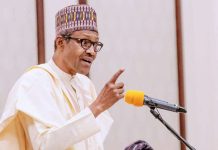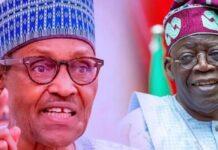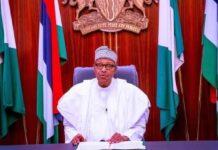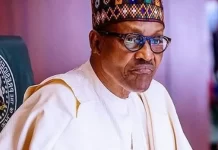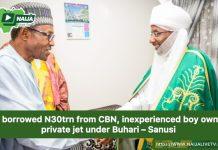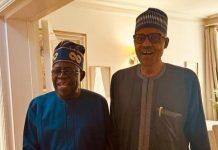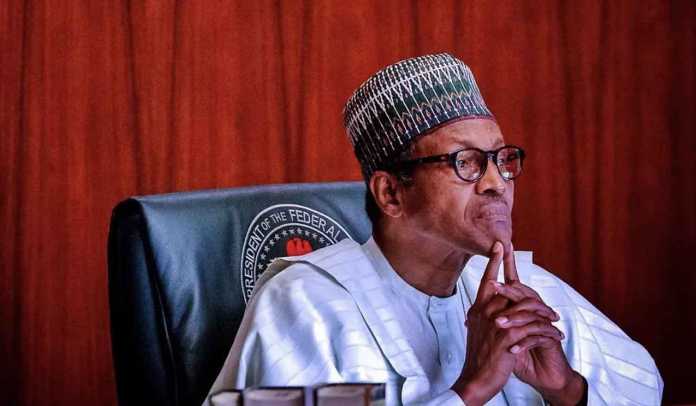
PRESIDENT Muhammadu Buhari is insouciant about the process of government, the art and mechanics of governance. Otherwise, how else would one explain his lackadaisical approach to ministerial appointments and his aberrant views about the role of ministers? As everyone knows, Buhari spent the first six months of his first presidential term without a cabinet, without ministers! Now, déjà vu, he is nearly three months into his second term and still hasn’t named his ministers; instead, he is saying to Nigerians: “Give me more time”! But what is it about ministers that President Buhari always struggles to appoint them?
Every newly elected or re-elected president must, as a matter of priority, speedily form a cabinet. It’s very rare, in a serious democracy, for a president to have no ministers for three, let alone six, months! For instance, American presidents are elected in November and sworn in on January 6; yet, within two months of being elected or re-elected, a US president comes into office fully armed with a list of his cabinet nominees. By contrast, a newly elected or re-elected Nigerian president has over three months, from election in February to swearing-in on May 29, before assuming office. Thus, there is no reason, other than unpreparedness for office, why a president cannot unveil his ministerial nominees a month after his inauguration.
Yet, President Buhari has, not once but twice, treated forming his cabinet with a couldn’t-care-less attitude. But why is Buhari so cavalier about ministers and the cabinet? Well, one proposition is that the president, a former military governor, a former military head of state, enjoys wielding personalised power. Indeed, he believes that, as president, he is “the government”. In 2015, Francois Picard of the French TV France 24 asked the newly elected president: “You don’t have a government yet. When are you going to establish a government?” Buhari was bemused. “What do you mean by we don’t have a government?” he retorted, adding: “We have a government, that’s why I am here”.
Of course, Picard was right. In the West, you don’t have a government until you have a cabinet. There is no room for a president acting as a sole administrator and simply working through civil servants; that only happens in a dictatorship. But Buhari thought then, in 2015, that he could run the country directly through permanent secretaries and was very dismissive of ministers. Asked in the same France 24 interview whether he thought that having no ministers for several months was hurting the economy, President Buhari responded with an emphatic “No”! “The ministers are there to make a lot of noise,” he said, adding, for emphasis: “They are there to make a lot of noise”! For him, only civil servants, who he called “technocrats”, really mattered, and, left to him, he would run the country with them alone without ministers, the “noisemakers”!
But the Constitution doesn’t see ministers as “noisemakers”. Section 144(5) specifically provides for “the Body of Ministers of the Government of the Federation”, and section 148(2) explicitly requires the president to “hold regular meetings” with the Vice President and “all the Ministers of the Government of the Federation” for the purposes of “determining the general direction of domestic and foreign policies of the Government of the Federation”. Of course, the president is the “head” of the Government of the Federation, but the cabinet is its “body”. Thus, you can’t have a government, a democratic government, with a president without a cabinet. So, Picard was right; Buhari was wrong!
The important point that bears stressing is that the president cannot act as a sole administrator, determining Nigeria’s domestic and foreign policies alone; he must do so with the country’s highest policy-making body: “the executive council of the federation”! Surely, by having no ministers, for about three months, as I write, President Buhari gives the impression he enjoys wielding personalised power and believes his personal whims should dictate national policy. That would be seen, in the Western world, and should by Nigerians, as disregarding traditional democratic niceties, not to mention ignoring the Constitution.
But it also undermines effective government. Ministers are not just the nation’s ultimate policymakers; they are also the heads of government ministries. In that latter role, they act as public advocates of government policies, present a vision and set strategic objectives for their ministries and ensure, by providing effective leadership and direction, that civil servants deliver the policy objectives on the ground.
Now, given the critical policymaking and policy-delivery roles of ministers, it follows – doesn’t it? – that a nation’s cabinet must consist of some of its best and brightest, that a nation must have a government of all the talents, as one British prime minister once described his cabinet. Unfortunately, having described ministers as “noisemakers”, President Buhari, unsurprisingly, had a very mediocre and lacklustre first-term cabinet!
Recently, Buhari said he didn’t know most of the people in his first cabinet and that, this time, “I will only appoint people I personally know”. But how can a president personally know the best and brightest across his country? Trouble is, by “personally know”, Buhari meant those likely to tell him what he wants to hear. But that’s a recipe for a supine cabinet, a failed government.
Buhari needs the best technocratic and reformist minds in Nigeria, even if by recommendations. Short of that, he is being cavalier with governance!
Kindly contact us @ Naijalivetv@gmail.com
Call or Whatsapp: 07035262029, 07016666694, 08129340000


